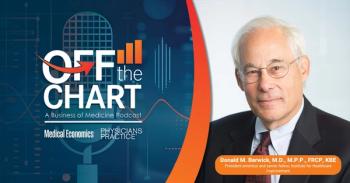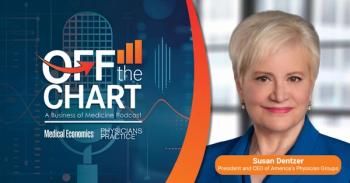
Single Payer - The Logical Endpoint of Healthcare Reform
Provide the same amount of care with less money and there is less available for profit. Eliminating the profit could allow the same amount of care to be provided at less expense but you would be left with the dreaded "government-run healthcare system."
The World English Dictionary definition of care includes: to be troubled, concerned or affected emotionally; to have regard, affection, or consideration (for); to provide physical needs, help, or comfort (for); careful or serious attention. However you define care, there are several things you can count on:
• Computer equipment doesn't care - it can't. Specifically, equipment doesn't care about cutting cost; it is a cost.
• Insurance companies don't really care about individuals. They do care about whether they make a profit from covering an individual. If they embraced any additional definitions of care it would create an internal conflict of interest and profit would win. Insurance companies care about cutting cost to the extent that they can keep the savings, otherwise any effort to cut cost will cut into profit.
• The government cares about abstract notions of public good as defined by the political climate du jour. Beyond that, the government cares about statistical equity because that's the standard by which it will be judged. It's not that anyone 'should' get anything in particular but that any distribution should be "fair." Fairness dictates no individual or group should get more than another.
• It is becoming "politically correct" to care about cutting the "cost" to federal, state, and local treasuries. From the government's perspective, cost is "cut" just as effectively by shifting it somewhere else as by actually eliminating an expenditure.
Real care comes from people - family members, doctors, nurses, and other health workers. So it comes down to people vs. money and what is done about the money.
Today, healthcare money is handled in two ways. A portion is given to the government channel and the rest is given to the insurance channel. In the government channel the funds are used to fill two buckets - administration and care. In the insurance channel the money is used to fill three buckets - administration, profit, and care.
If the pot of money is reduced and the existing payment mechanisms remain unchanged there will be less money for people so there will be less care. Why? Because something has to give. Only a system in which patients paid physicians directly, in cash, could administrative costs be essentially eliminated. No other type of program could function without an administrative component so, aside from being unavoidable, administrative costs are a given.
What's left is a choice between care and profit. Provide the same amount of care with less money and there is less available for profit. Eliminating the profit could allow the same amount of care to be provided at less expense but you would be left with the dreaded "government-run healthcare system."
So to paraphrase Pastor Martin Niemöller (1892–1984):
First they reduced care for the uninsured;
and I didn't speak out because I wasn't uninsured.
Then they reduced the trade unionists’ healthcare benefits;
and I didn't speak out because I wasn't a trade unionist.
Then they reduced care for Medicare recipients;
and I didn't speak out because I wasn't on Medicare.
Then I got sick;
and there was no one left to care for me.
Care comes from people. Reduce the funds available for care without changing the structure of the system and the number of healthcare practitioners will be reduced. With fewer people to care, there will be less care. Leave profit in the picture and there will be a lot less care.
Who cares?
For more on Dan Essin and our other bloggers, click
Newsletter
Optimize your practice with the Physicians Practice newsletter, offering management pearls, leadership tips, and business strategies tailored for practice administrators and physicians of any specialty.








